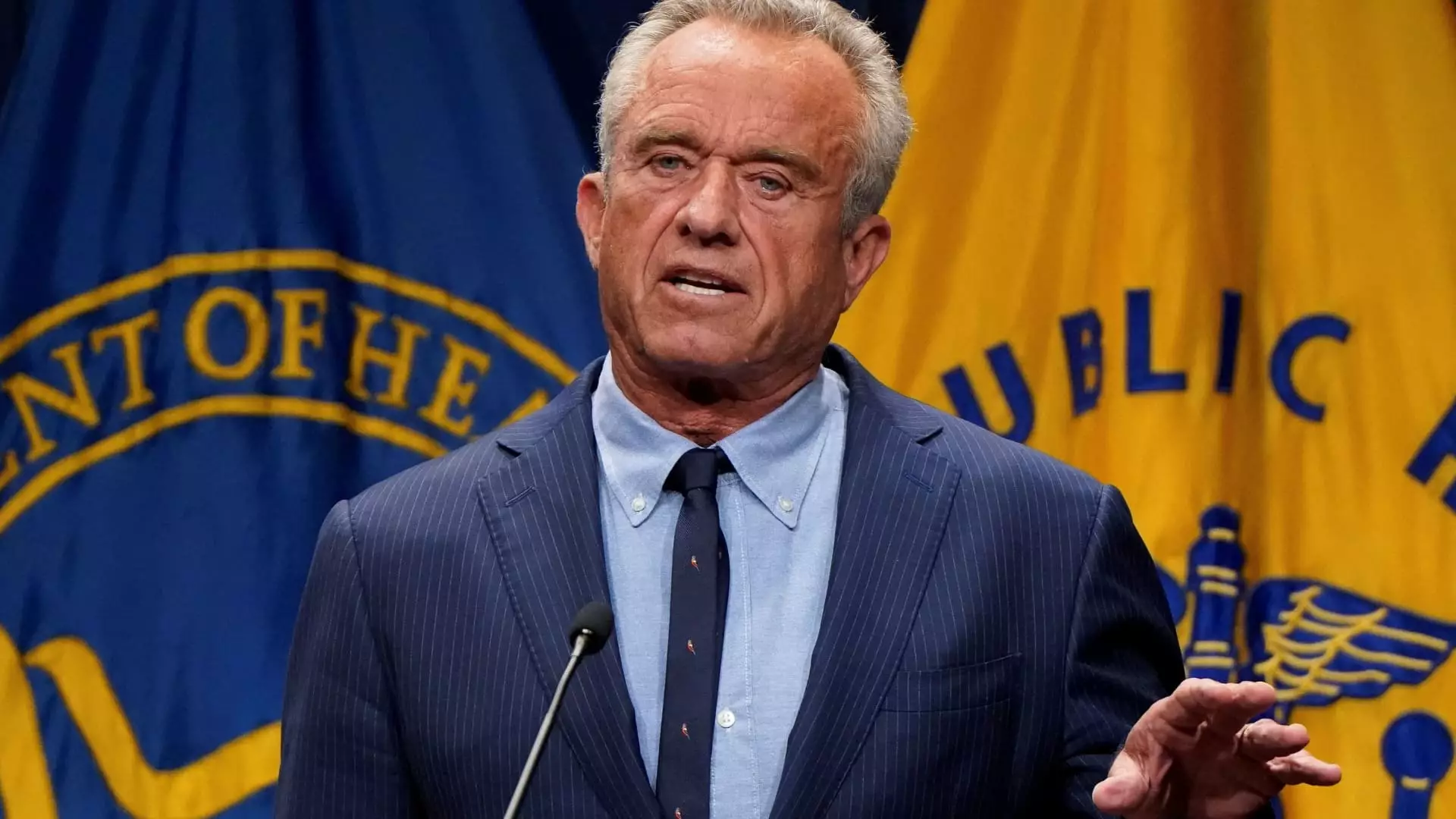In a shocking turn of events, Health and Human Services Secretary Robert F. Kennedy Jr. has revamped the Advisory Committee on Immunization Practices (ACIP) by appointing eight new members, the majority of whom are known for their skepticism towards vaccines. This upheaval follows the abrupt dismissal of the previous committee, raising alarm bells among public health experts who fear that this shift could threaten the very foundation of vaccination policies in the United States. Injecting skepticism into the heart of public health is not merely an administrative change; it is a perilous gamble that could have far-reaching consequences for child health and safety.
Kennedy’s newfound advisors include Dr. Robert Malone, a controversial figure known for propagating misinformation about vaccines, particularly regarding mRNA technology. While these individuals boast credentials and titles, the real question is whether they can balance their skepticism with the rigorous scientific standards that have historically informed vaccine policy. It is troubling to witness such a significant alteration to an institution that dictates life-saving health interventions being influenced by individuals whose motives may not align with collective public health interests.
Questionable Credentials and Discredited Views
The ACIP is supposed to serve as an unbiased advisory body that operates on established scientific fundamentals. However, the roster of new members indicates a concerning trend towards anti-vaccine ideologies. Dr. Joseph Hibbeln, an esteemed psychiatrist but not a vaccine specialist, raises eyebrows among those advocating for evidence-based medicine. Similarly, Dr. Martin Kulldorff, an epidemiologist removed from his academic positions in part due to controversial statements on the COVID-19 pandemic, joins a panel that is now undermined by the specter of personality-driven decisions rather than collective expertise.
Vicky Pebsworth’s appointment is especially alarming; as a nurse associated with The National Vaccine Information Center—an organization often criticized for spreading misguided fear regarding vaccinations—her presence on the committee sends a worrying signal about the direction the ACIP could take under Kennedy’s leadership. By advocating for vaccine discourse laced with misinformation and doubt, we could be opening a Pandora’s box that might put countless lives at risk, particularly among vulnerable populations like children.
Public Health in Peril
If Kennedy and his newly appointed advisors take the reins of ACIP with a predisposed skepticism towards vaccines, it could lead to inadequate vaccination rates, diminished public trust, and potentially disastrous outbreaks of preventable diseases. Public health expert Lawrence Gostin put it aptly when he said, “We all knew this would happen and it’s a national tragedy.” The implications of overlooking well-researched and thoroughly vetted vaccine recommendations can produce widespread public health crises that reverberate through communities for generations.
Dr. Paul Offit’s prediction that ACIP’s future recommendations could be “less informed” reflects a sentiment shared by many in the public health arena who regard the previous committee members as possessing the essential expertise to navigate complex vaccine data. For a committee tasked with evaluating vaccine safety and efficacy, the stakes have never been higher. We must be wary of members whose philosophies oppose the fundamental tenets of public health, particularly when misinformation campaigns have already sown discord among the public.
The Ideological Divide
The current political climate has lent itself to polarization over many subjects, and vaccination is perhaps one of the most charged. Kennedy’s appointments highlight this ideological chasm, where a segment of the population prioritizes skepticism and sensationalism over scientific evidence. It is imperative for those who value science-based public health to voice their concerns and demand accountability. Announcing an agenda based on fear rather than facts not only undermines scientific research but also complicates the complex narrative surrounding vaccine efficacy.
With figures like Retsef Levi publicly denouncing mRNA vaccines as harmful, we need to question the motives behind such claims. Assertions that lack foundation, even if echoed by those in positions of authority, threaten a public health landscape that was painstakingly established on the sound principles of rigorous research and evidence-based science. As our understanding of emerging diseases continues to evolve, hinging national vaccine policy on discredited views jeopardizes the decades of progress we have made in public health.
As we stand witness to the restructuring of influential advisory bodies, we must remain vigilant and proactive, ensuring that the foundation of our public health policies continues to rest squarely on the principles of integrity, evidence, and unwavering commitment to the welfare of all citizens.

